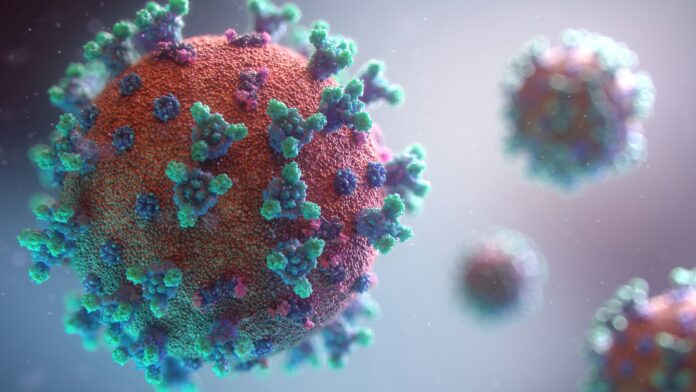Health experts warn of new COVID wave as highly contagious FLiRT variant dominates infections
A new highly contagious coronavirus variant, dubbed FLiRT, is spreading rapidly across the UK, raising concerns among health experts. The UK Health Security Agency (UKHSA) reports a significant increase in cases attributed to the FLiRT variant, with experts warning of a new Covid wave.
Over the last two weeks of April, the FLiRT variant, specifically KP.2, caused about 25% of new sequenced cases in the US. In the UK, circulating variants include several JN.1 sublineages, with KP.2 being one of the prominent strains. Professor Christina Pagel from University College London indicated that FLiRT variants might account for around 50% of current COVID-19 infections.
UKHSA is closely monitoring the situation, assessing the severity of new variants and the effectiveness of vaccines. There is no change to public health advice for now, but officials stress the importance of remaining vigilant.
Viruses mutate frequently, resulting in new variants that can spread more easily or become resistant to treatments and vaccines. The US Centers for Disease Control and Prevention (CDC) warns that as the virus spreads, it may evolve, making it harder to control.
Recognizing COVID-19 symptoms can be challenging since they resemble flu symptoms. Most people recover within 12 weeks, but some develop severe illness and persistent symptoms. As data on the FLiRT variant increases, UKHSA will better understand its interaction with the immune system.
Amesh Adalja, a senior scholar at the Johns Hopkins Center for Health Security, advises high-risk individuals to seek antiviral medication if they contract the virus. She emphasizes the importance of staying up to date on vaccines and having access to treatments like Paxlovid.
Covid-19 symptoms include a high temperature or chills, a new continuous cough, loss of taste or smell, shortness of breath, fatigue, body aches, headaches, sore throat, runny or blocked nose, loss of appetite, diarrhoea, and nausea. If you exhibit symptoms, avoid contact with vulnerable individuals and stay home if possible.
Although Covid-19 testing is no longer mandatory, those who test positive should be isolated to prevent the spreading the virus. Children and young people should stay home for three days after testing positive, while adults should isolate for five days. Avoid meeting high-risk individuals for ten days following a positive test.
Analysis:
The emergence of the FLiRT variant highlights the ongoing challenges posed by COVID-19 and the importance of vigilance in public health. This new wave of infections has several critical implications.
From a public health perspective, the rapid spread of the FLiRT variant underscores the need for continuous monitoring and adaptation of strategies to manage COVID-19. The mutation of the virus and the emergence of new variants require ongoing research and updated vaccination protocols to ensure effective protection.
Economically, another Covid wave could have significant repercussions. Businesses may face disruptions due to increased illness and absenteeism, while healthcare systems could experience heightened pressure. Ensuring that the workforce remains healthy and operational requires robust public health measures and support for affected individuals.
Sociologically, the impact of the FLiRT variant on different communities must be considered. Populations with limited access to healthcare and vaccines may face greater risks. Public health campaigns need to address these disparities, ensuring that vulnerable groups receive adequate protection and information.
From a political perspective, the handling of this new variant will likely influence public perception of government and health agencies. Effective communication and transparent decision-making are crucial in maintaining public trust and cooperation in health initiatives.
The gender perspective is also significant, as women, particularly those who are pregnant, may have specific health concerns and require tailored guidance and support. Ensuring that all demographic groups receive appropriate healthcare and information is vital in managing the pandemic’s impact.
Race and minority perspectives must also be addressed, as these groups often experience disproportionate effects from public health crises. Cultural sensitivity and targeted outreach can improve vaccination rates and healthcare access in these communities.
Theoretically, the ongoing mutation of the virus can be analyzed through evolutionary biology and public health theories, which emphasize the importance of adaptability and resilience in health systems. Ensuring high vaccination rates and effective treatments is crucial in preventing severe outbreaks and protecting public health.
Overall, the spread of the FLiRT variant serves as a reminder of the importance of ongoing vigilance, robust healthcare infrastructure, and effective public health strategies. Maintaining high vaccination coverage and monitoring new variants are essential to mitigating the impact of COVID-19 and ensuring community health and safety.
